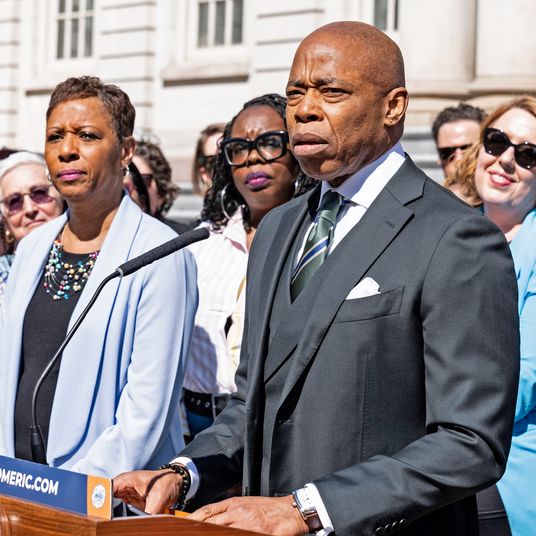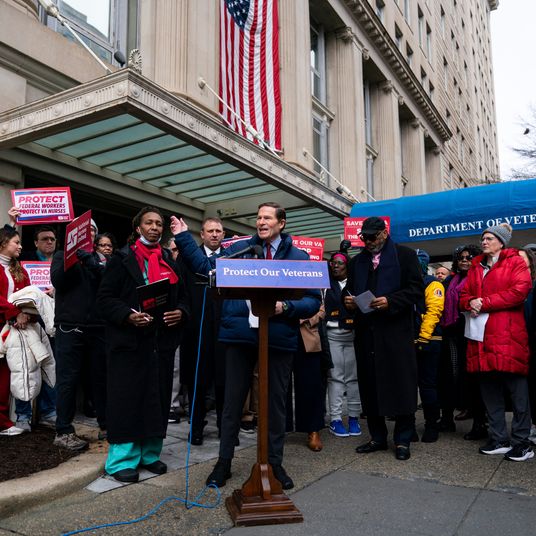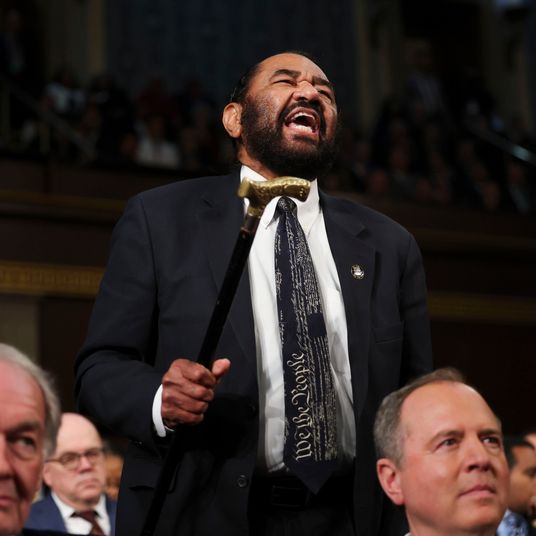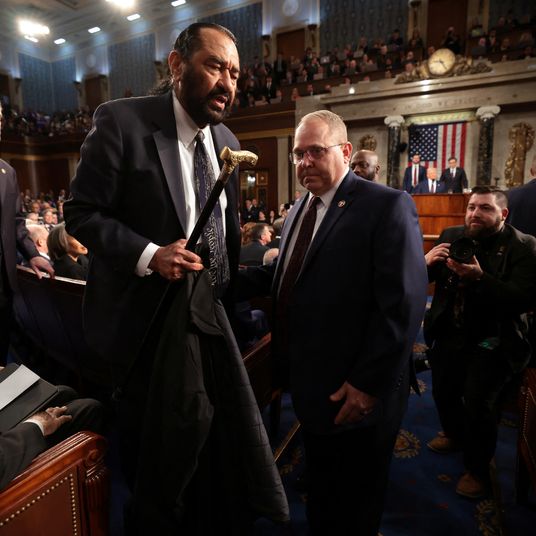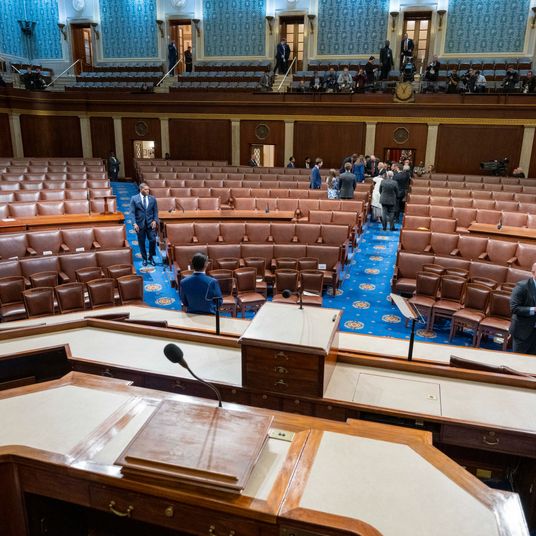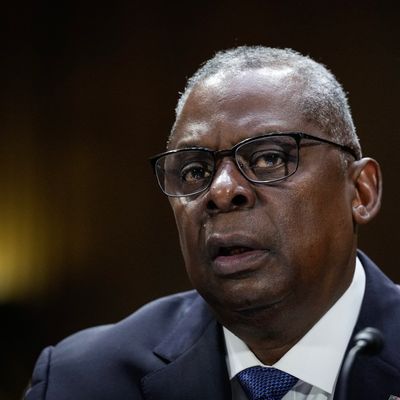
The Biden administration suddenly finds itself embroiled in a rare personnel scandal following a bizarre situation with Secretary of Defense Lloyd Austin — who ended up hospitalized last week and apparently didn’t tell senior administration officials or his own deputy about it. After days of speculation, Austin’s doctors revealed that he had undergone surgery for prostate cancer and received additional treatment for an infection following the operation. Below is what we know about this still-developing story, which has left a lot of people in Washington, D.C., scratching their heads.
What happened?
Defense Secretary Lloyd Austin has been hospitalized at Walter Reed National Military Medical Center in Virginia since January 1 for treatment following what Pentagon Press Secretary Pat Ryder said were complications from a minor elective medical procedure. The 70-year-old had that procedure done on December 22, according to the Pentagon, but began experiencing severe pain last week and was eventually admitted to Walter Reed’s intensive care unit, where he then remained for four days.
On Tuesday, January 9, Austin’s doctors at Walter Reed finally issued a statement, revealing that the Defense Secretary had been diagnosed with prostate cancer and underwent a successful surgery on December 22 to treat the cancer. Days after he returned home, Austin presented with symptoms of nausea and severe pain and it was later determined that he had an infection, prompting his admission to Walter Reed for additional treatment and evaluation. His doctors say Austin was never under general anesthesia during this time and was always conscious. Austin is expected to make a full recovery. However, it’s still not clear when he will be discharged.
What is clear is that senior leaders at the Pentagon and White House — including President Biden, National Security Adviser Jake Sullivan, and Deputy Secretary of Defense Kathleen Hicks — didn’t know about Austin’s hospitalization until days later. Multiple reports indicate that they weren’t informed about Austin’s condition and hospitalization until Thursday, January 4.
One reason for the delayed notification, according to the Pentagon, was that Austin’s chief of staff, Kelly Magsamen, was also ill and not able to tell senior officials about Austin’s illness until January 4.
The Pentagon reportedly did not notify the White House about Austin’s December 22 procedure either:
More notably, National Security Council spokesman John Kirby said that Biden only learned of Austin’s prostate cancer diagnosis Tuesday morning, despite the two reportedly speaking days earlier on Saturday.
“It is not optimal for a situation like this to go as long as it did without the commander in chief knowing about it or the national security advisor knowing about it or, frankly, other leaders at the Department of Defense,” Kirby said. “That’s not the way this is supposed to happen.”
Austin has acknowledged responsibility for the snafu
On Saturday, Defense Secretary Austin released a statement in which he appeared to take the blame for the communication breakdown:
I am very glad to be on the mend and look forward to returning to the Pentagon soon. I also understand the media concerns about transparency and I recognize I could have done a better job ensuring the public was appropriately informed. I commit to doing better.
But this is important to say: This was my medical procedure, and I take full responsibility for my decisions about disclosure.
On Monday, the Defense Department issued a statement saying that Austin is still currently hospitalized at Walter Reed, but that he is out of intensive care and has “resumed the full duties of his office and remains in contact with senior advisors” as he continues to recover.
“He continues to experience discomfort, but his prognosis is good,” Ryder said.
So why didn’t Austin tell anyone?
Politico Playbook reports that the prominent explanation put forth by administration insiders is that the defense secretary is just a stubborn old-school military guy who keeps this sort of thing to himself:
[Austin] is an intensely private man, a 70-year-old four-star general who is set in his ways and dislikes to “bother” people (including, apparently, some of his staff) with his problems — a tough, “stiff upper lip” bearing that will be immediately familiar to those of us who grew up in military families … It seems, based on his public statement, that Austin believes in a level of privacy that, in actuality, isn’t really afforded to people high up in the presidential line of succession — to say nothing of the person charged with maintaining the nation’s nuclear readiness.
In a separate report, Politico adds that:
Former and current U.S. officials who have worked with Austin say he is well-known as an introvert, shunning the cameras and keeping only a few close confidantes during his decades-long military career. As the four-star general overseeing U.S. Central Command during the Iraq drawdown, he rarely held press conferences. As defense secretary, in contrast to his predecessors, he takes only a handful of media on official travel. He has not done a press conference in the Pentagon since last July, although he regularly briefs the press during his travels.
Austin’s job seems safe for now, despite widespread criticism
Though many at the White House are reportedly befuddled by Austin’s poor judgement regarding the matter, President Biden remains in the retired general’s corner and Secretary of State Antony Blinken has spoken out in support of Austin. Four senior Biden administration officials have told Politico that the president isn’t even considering getting rid of Austin, and also would not accept his resignation, should he offer it.
“We’ll take a look at the process and procedure here and try to learn from this experience,” National Security Council spokesman John Kirby told reporters on Monday, though he acknowledged that “there’s an expectation that when a Cabinet official becomes hospitalized … that will be notified up the chain of command.”
The Pentagon Press Association sent the Department of Defense an official letter of protest on Friday:
The fact that he has been at Walter Reed National Military Medical Center for four days and the Pentagon is only now alerting the public late on a Friday evening is an outrage. At a time when there are growing threats to U.S. military service members in the Middle East and the U.S. is playing key national security roles in the wars in Israel and Ukraine, it is particularly critical for the American public to be informed about the health status and decision-making ability of its top defense leader.
The top ranking Republican on the Senate Armed Services Committee, Senator Roger Wicker, has said that the failure to disclose Austin’s medical condition is “unacceptable” and he has called for a “Full accounting of the facts immediately.” House Armed Services Committee chair Mike Rogers and the committee’s top Democrat, Adam Smith, have also said that Austin must quickly provide answers regarding the lack of transparency and how the situation was handled. House Republican Conference Chair Elise Stefanik is calling for the “immediate resignation of Secretary Austin and those that lied for him” as well as a congressional investigation into the lack of disclosure. Congressman Matt Rosendale has filed articles of impeachment against Austin citing a “repeated pattern” of dishonesty.
Politico reports that Austin may not lose his job, but someone else might:
[S]ome officials speculated a senior aide at the Pentagon is likely to lose their job over the brouhaha. “Someone’s head has to roll,” said a DOD official. “Not telling the [White House], Congress or the media he is sick, and then telling Pentagon staff he is working from home is next level. This is a problem,” said one former senior DOD official. “Someone made the decision not to disclose. That person will likely be gone shortly.”
Then again, wonders Fred Kaplan at Slate, how important is Austin to the administration if his disappearance went unnoticed for days?
If Austin were a vital member of Biden’s national-security team, if he were deeply enmeshed in decision-making on the wars in Ukraine or the Middle East, excuses might be made and tolerated. But the fact that Biden learned of Austin’s absence only after four days—i.e., the fact that Biden hadn’t been in touch with his secretary of defense for four days during a period of round-the-clock military operations and crisis—suggests that Austin is far from essential.
Were Austin’s responsibilities properly transferred?
It seems that at least some of them were. The Pentagon said Sunday that Austin transferred “Certain operational responsibilities that require constant secure communications capabilities” to Deputy Secretary of Defense Kathleen Hicks on the afternoon of Tuesday, January 2 — one day after he was admitted to Walter Reed. Pentagon spokesman Pat Ryder said that “This transfer occurs from time to time and is not tied chiefly to health-related matters,” and that Hicks, who was vacationing in Puerto Rico at the time, “Keeps a complete suite of communications and capable staff with her at all times, regardless of geographic location.” Per the Wall Street Journal:
Hicks, who was on a beach in Puerto Rico with her family, was informed by the Pentagon that she needed to assume some of Austin’s duties. The request was a surprise since Hicks had planned her vacation well in advance and normally, if she was to assume the defense chief’s duties, she should be in Washington to perform them.
She wasn’t told why she would have to step in, and, according to what military officials have said in a shifting narrative of the last few weeks, didn’t ask why.
The communications team which routinely travels with her, even while on leave, prepared for an elevated role while at the hotel, which required her to stick close to her communications suite, forgoing walks on the beach. She began to make some routine operational and management decisions in Austin’s stead, and was “fully authorized and ready to support the president on other military matters, should the need have arisen,” a Pentagon official said.
That same day, news of Austin’s hospitalization went to a few officials, including Air Force Gen. CQ Brown, Jr., the chairman of the Joint Chiefs of Staff, but no details were shared about why he was there or his condition, according to Pentagon officials. For two more days, information about Austin’s condition was kept to the small group of aides.
Hicks then planned to return to D.C. on Friday but was told that wasn’t necessary since Austin would be resuming his responsibilities from the hospital.
On Monday, the Pentagon ordered a 30-day review of the department’s notification process for when the defense secretary’s duties are to be taken on by its deputy. The review will focus on the timeline of Austin’s hospitalization and how other officials were notified. On Thursday, the Pentagon’s inspector general said it was also launching an investigation into the matter.
This post has been updated.









